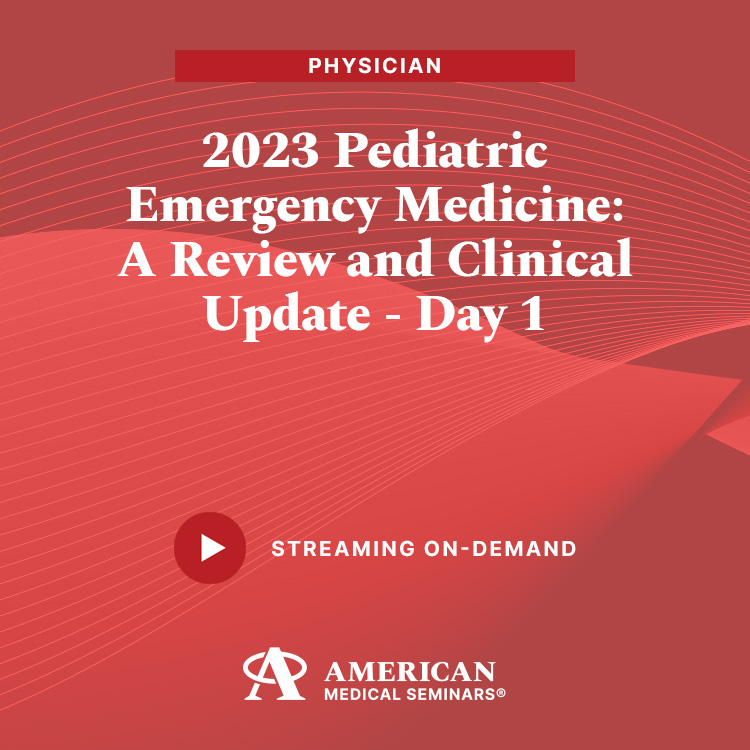Product Description
Title: Pediatric Emergency Medicine: A Review and Clinical Update – Day 1 (Non-Physician)
Faculty: John Loiselle, M.D., F.A.A.P.; Rakesh Mistry, M.D., M.S.; Richard Scarfone, M.D., F.A.A.P.
Release Date: 7/1/2023 Expiration Date: 7/1/2026
Day 1
Let’s Use Our Heads: Head Trauma
Upon completion of this session, the participant should be able to: GL, COMP
- Apply a decision rule generated from a multi-center study to manage head-injured children.
- Manage children who have sustained concussions and apply guidelines from the International Conference on Concussions and other recent publications.
- Utilize imaging studies appropriately in the evaluation of head-injured children.
Visual Diagnosis
Upon completion of this session, the participant should be able to: EBM, COMP
- Demonstrate the ability to identify diagnoses in children by simple visual inspection.
- Discriminate among common pediatric diagnoses by asking appropriate historical questions.
- Employ Evidence-Based Medicine and Guideline based management of diseases such as Lyme, Bell’s Palsy, DKA, and other commonly seen disorders.
Summer Scourges
This is the identification, treatment and prevention of common summertime maladies including sunburns, poison ivy and mosquito bites. Upon completion of this session, the participant should be able to: COMP,
- Identify specific signs and symptoms of insect bites and stings.
- Dispel common myths regarding the management of poison ivy and insect bites.
- Explain the management of summertime afflictions such as poison ivy and sunburn.
The Eyes Have It: The Red-Hot Eye
Upon completion of this session, using information from review articles, the participant should be able to: COMP ^
- Demonstrate the six-point eye examination and summarize what clinical conditions may be identified by each step in the examination.
- Treat eye pathology resulting from infection or trauma and relate examples of when to refer a child to an ophthalmologist.
- Summarize the differences between sinusitis with inflammatory edema, peri-orbital cellulitis, and orbital cellulitis.
Simple and Complex Febrile Seizures
Upon completion of the session, the participant should be able to: GL, COMP
- Educate parents regarding the prognosis of a child with simple febrile seizures.
- Distinguish between a simple and complex febrile seizure.
- Apply AAP guidelines in formulating an appropriate evaluation of the child following a simple febrile seizure.
- The receipt for any incentive-associated purchase will designate the value of the gift card separately from the cost of the learning activity.
- This incentive may have implications on your tax reporting obligations. Any reimbursed amount must be declared as personal income for tax purposes.


